Travel Perspectives:
Busting My Own Myths About India
Late last year I finally traveled through India. After 20 years of hemming and hawing about braving India’s noise, crowds, filth and hassles I finally came up with a plan for an Easy Trip Through India and took the leap. For three months I traveled through the Indian Himalayas and the remote Andaman Islands.
The end result: not only did I survive India, but I had a great and even easy time of it. My grand plan actually worked!
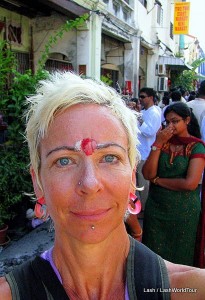 So why had it taken me 20 years to brave up and visit India? That’s easy: For years I had heard dozens upon dozens of stories of hassles, noise, illnesses and crowds. I’d read many accounts by solo women travelers. I’d been told first-hand stories by women travelers I’ve met, including one of my best friends. The more I read and heard, the more hesitant I’d become.
So why had it taken me 20 years to brave up and visit India? That’s easy: For years I had heard dozens upon dozens of stories of hassles, noise, illnesses and crowds. I’d read many accounts by solo women travelers. I’d been told first-hand stories by women travelers I’ve met, including one of my best friends. The more I read and heard, the more hesitant I’d become.
Over the course of 20 years of bad stories, I’d built up my own image of India, one that I dreaded to experience.
Despite that, I finally took the plunge last year. In the process I busted several personally-created myths about the country. In fact, soon after I arrived I began to realize the visions I held about India were greatly exaggerated ideas, quite far from reality. More than once I was pleasantly astounded at the real India vs my tortured visions.
So now it’s time to set the record straight.
Following are six myths I believed about India before I visited and what I actually experienced while traveling there.
Myth 1: Every place in India is constantly filled with people
By the time I ventured to India I really believed that literally every single place in the entire country was crowded with people. I imagined that even small towns, tiny villages, the countryside and the mountains were all filled with people all the time due to extremely high population density.
Watching Bollywood movies and music videos I had often laughed at romantic scenes set in mountains, fields, desert and beaches that were entirely devoid of people, save for the actors. I wondered how on Earth the producers had ever emptied out an area of hundreds of people just to make their films. “Ha, ha,” I’d say, “There’s no place in India that’s empty like that.”
So on my very first bus journey in India, traveling from the Himalayan town of Dharamsala down to Amritsar city on the Indian plains of Punjab state, I was astounded for almost the entire 7-hour trip.
First we drove two hours through forested mountains. All I saw were trees, rocky streams and wild mountains. We passed very few people or towns.
Next we emerged onto the flat Indian plains. After driving through a small congested city we burst into flat fields that stretched to the horizon in every direction. I hardly saw any people at all for several hours as we drove across rural Punjab state.
Within two weeks of arriving I learned that India really does have empty fields and mountains nearly devoid of people and small towns that are not crowded. In fact, much to my amazement, India is full of such places!
Myth 2: Every place in India is continuously noisy
One of the main reasons I decided to travel through the Indian Himalayas is that I knew the region was full of small towns rather than big sprawling cities. I didn’t know what the the population density was, but I figured purely by the fact that they were small mountain towns they couldn’t have nearly as much traffic, nearly as many people or nearly as much noise as the big Indian cities.
Happily, that assumption proved to be exactly correct. Sure, there were cars, trucks, tuk-tuks and buses. There were engines running and horns honking sometimes. But it was reasonable.
Even better, all the towns I visited have low population densities. Sure there were people. But there weren’t any dense crowds or jam-packed roads.
Nights were quiet everywhere I stayed. I was rarely disturbed by noise while sleeping during my entire 3-month journey. And in the Andaman Islands I was actually serenaded to sleep by chirping insects.
Myth 3: It’s difficult or impossible to get time and space alone
One of my greatest worries about traveling through India was to never get any solitude. I do enjoy socializing, but I also need some solo time every day to feel calm and grounded.
I knew that no matter how crowded, how noisy, how hectic it might be out in public, if I could get peace and solitude in my room when I wanted then I’d be able to handle India.
But stories I’d heard and read about India detailed how it’s nearly impossible to get time alone in public or even in your own hotel room. Supposedly, out in public places locals regularly swarm around western tourists, intently watching their every movement. When you retreat to your room, hotel staff, touts and curious locals often go pounding on you door and won’t stop pounding until the door is opened.
As it turned out, throughout my 3-month trip in India I had plenty of solitude, peace, quiet and solo time.
Out in public I was rarely hassled in any way. I was never swarmed by a crowd. I was rarely stared at or asked to pose for photos. I was never sexually harassed in any way. For the most part, I was left completely alone wherever I went.
Even better, I did plenty of outdoor activities completely on my own with no hassles or danger at all. I took several solo walks in the Himalayas around Dharamsala. I rode a motorbike solo up the Ganges River near Rishikesh. In the Andamans I frolicked in nature alone for an entire month – cycling, strolling the beaches, suntanning, snorkeling and walking the forested roads.
And to top it all off, my hotel rooms in every town I visited were quiet and relaxing. Nobody ever pounded on my door or otherwise disturbed me.
Myth 4: I cannot walk alone at night anywhere in India
While preparing for my trip to India, I’d repeatedly read and been advised to not walk alone at night in India. I took that to heart.
During my last few evenings in Nepal, just before flying to India, I prepared myself for India. I reminded myself that for the next three months I would never be outside my hotel after sunset. I would never walk through any town in the dark, let alone a forest, mountainside or field. I wouldn’t be able to see the stars or the moon. Instead, I would be confined to my room every evening for three months.
But after arriving at my first destination, Dharamsala, Home of the Dalai Lama and the Tibetans in exile, the small town seemed much safer than that. After sunset heaps of people were still wandering the streets. I decided that as long as other people were around I must be safe walking through the few roads within the town limits. So I continued exploring.
During my first evening walk I met up with a western woman who had been living there for several years. I asked her about safety for solo women. She told me that it was safe to walk alone up until about 9 pm, when most stores closed and the streets became empty. For the next two weeks I followed her advice and never had any problems walking around town after dark.
In other towns I visited I asked my hotel staff if it was safe for me to walk around at night. In most places I was told it was safe. I never had any problems in those towns either.
In the Andaman Islands, I was repeatedly told by locals that it was perfectly safe at any time of day or night. I tend to believe hotel staff properly advise their guests on safety issues. They certainly don’t want anything bad to happen to visitors, especially those staying on their premises.
Perhaps India’s big cities are not safe for women at night, but the small Himalayan towns I visited and the Andaman Islands seemed to be.
Myth 5: I will repeatedly be sexually hassled by Indian men
Over the years so many solo women travelers have told me about sexual harassment by Indian men, that I came to believe it was simply an unavoidable part of travel in India, at least for solo western women.
Women have told me how they were grabbed on their asses, their breasts, their thighs. Others told me how they were stared at, stared down, propositioned, peeped on, touched and otherwise made to feel exceedingly uncomfortable or violated.
In fact, fear of sexual harassment is one of the main reasons it took me 20 years to ‘brave’ India. I knew I would not respond well to being sexually harassed, especially if it occurred on a regular basis. There would be a lot of punching and yelling going on if that happened to me.
Luckily I did not have to pull out my fists even once during my entire 3-month trip. I was never touched or grabbed. I never got stared down or peeped at (as far as I know). I never endured an attempted rape. I never even felt mildly at risk, let alone in danger.
I don’t know if that’s because of the particular places I visited or because sexual harrassment doesn’t actually happen as frequently as I believed or if I give off that, “don’t mess with me, pal” vibe or what. I’m just glad I didn’t have to deal with it.
Most Indian men I met throughout my 3-month travels were very polite, helpful and respectful.
I only met up with one Indian perv during my entire 3-month trip. In Rishikesh on a beach along the Ganges River, a skinny old guy dressed in raggedy clothes became fascinated with watching two dogs having sex. Then he’d walk towards me asking, “Sex? Sex?” while I proceeded to move away from him. Eventually he gave up and left.
I never felt in danger during the incident since an Indian holy man lived nearby and pedestrians passed by regularly on the beach-side walkway. And I’m sure I could have scared the skinny, ragged man off if I’d needed to.
Myth 6: I have to be completely covered head to toe at all times
I knew that while traveling through India I would have to wear long sleeves and long pants or skirts. I had also read, heard and been advised that women should cover their heads, necks and shoulders with a shawl or scarf in order to thwart the unwanted attentions of men.
I wasn’t sure how often I’d have to cover my head, especially considering I have platinum blonde hair, but I figured it might be often. As it turned out, the only place I had to cover my head was during my visit to The Golden Temple of Amritsar.
I did not have to wear a head covering at the Taj Mahal. Nor did I ever need to wear one in the many small towns I visited or on the many bus rides I took through the Himalayas and out through the Indian plains.
I had an even bigger surprise though. On every local bus I took in the Himalayas I noticed that most Indian women don’t cover their heads. In addition, women of all ages, including high school and university students quite readily sat down beside unknown men. They did not seem at all worried about being touched or mistreated by male passengers. Indeed, I noticed that all the men kept their hands clearly to themselves and didn’t even divert their eyes toward female passengers.
I don’t know how Indian men act on buses and trains in other parts of India, but in the Himalayan states male passengers seemed very well behaved.
Conclusions:
I was quite happy and relieved to discover that India is not nearly as bad as I’d imagined, at least not in the Indian Himalayas and the Andaman Islands where I traveled. Apparently, in the course of two decades of reading and hearing bad stories about India, I had created my own exaggerated image of Indian horrors. Thank goodness I finally ‘braved’ the journey and was able to lay those myths to rest. In fact, India was splendid!
QUESTIONS:
If you’ve traveled through India, what were your experiences in regard to these issues?
Do you know any other myths or false beliefs about India that you’ve personally found to be untrue?
———————————————————————————————————————————————
You might also enjoy My Easy Trip Through India series:
pt 1: Start Your Trip in Dharamsala
pt 3: 10 Easy Indian Destinations
———————————————————————————————————————————————–





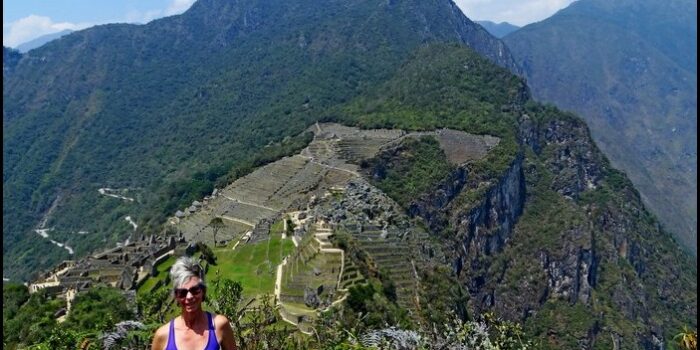
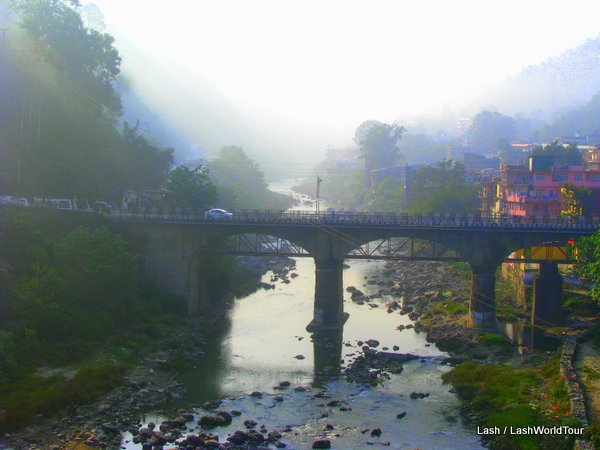
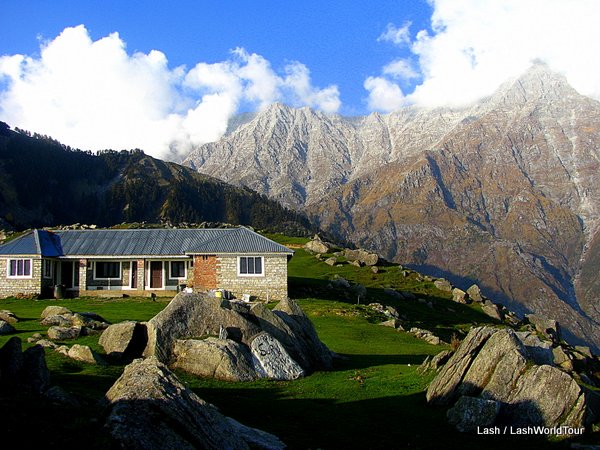
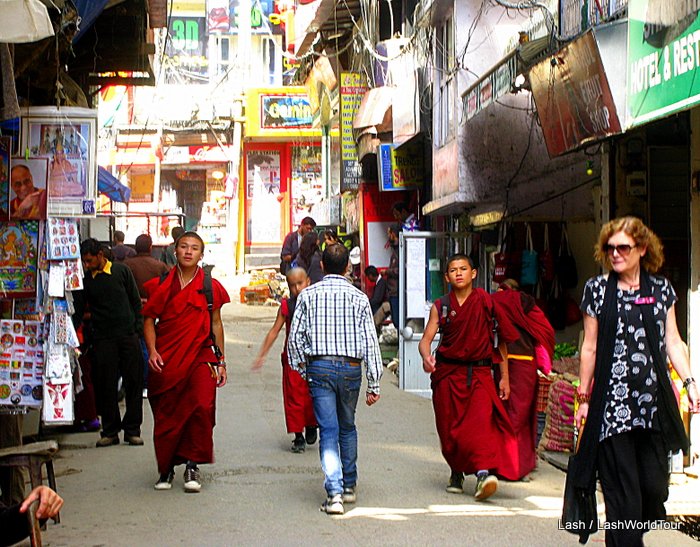
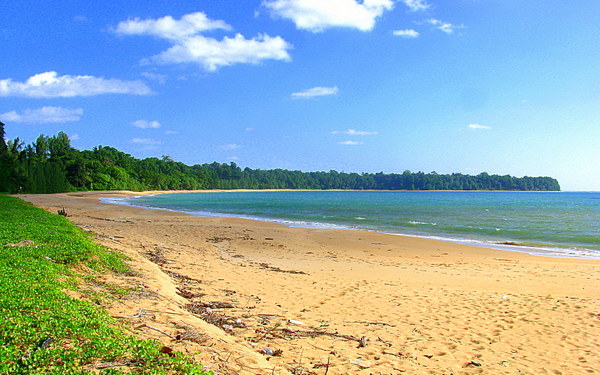
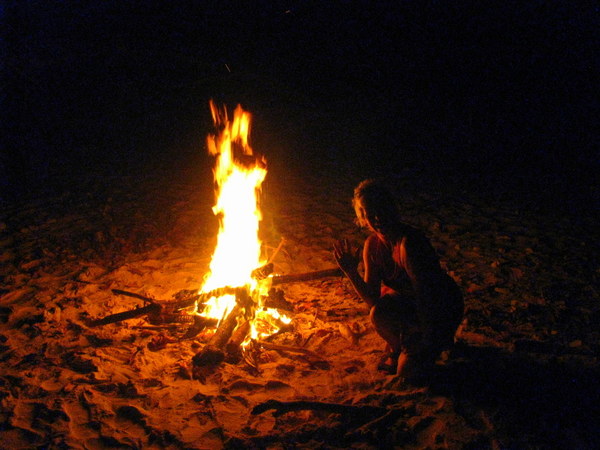
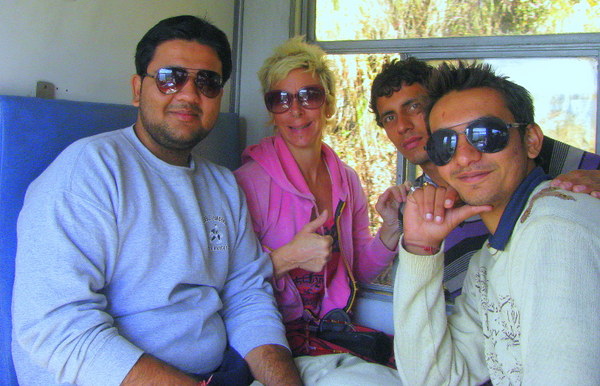

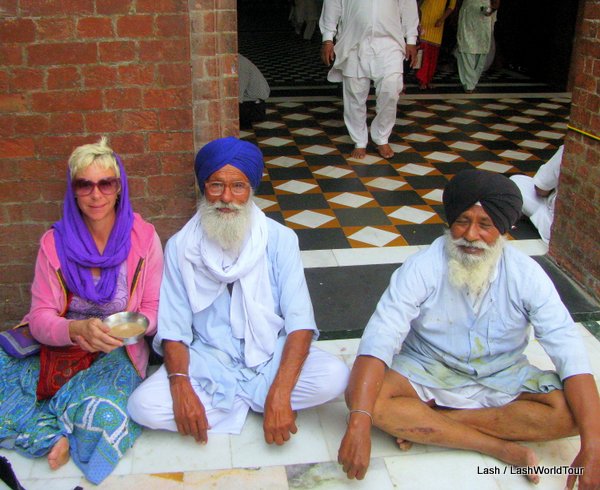
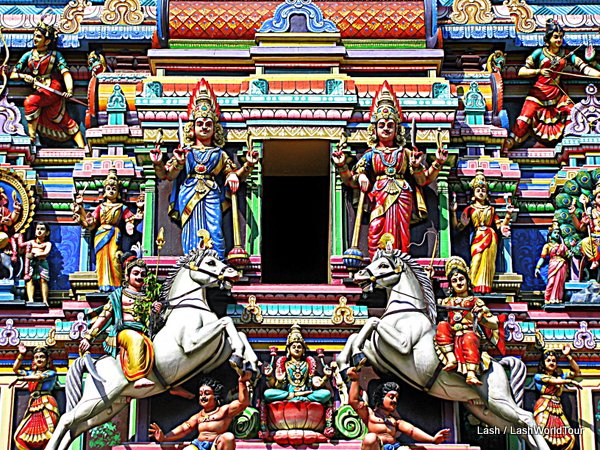
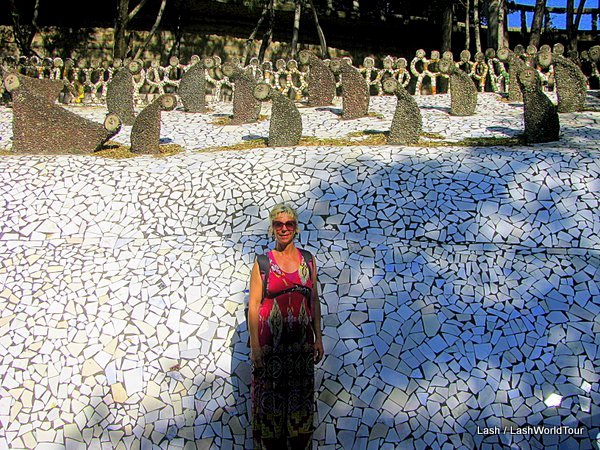
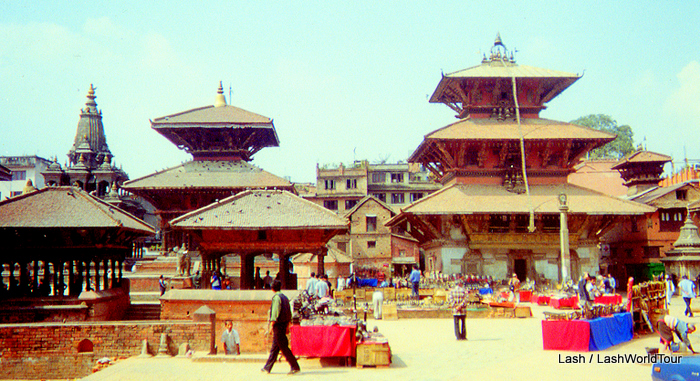


 Hi! I'm Lash, an American nomadic world traveler who's been traveling solo since 1998. I’m passionate about traveling the world nomadically and then sharing it all with you. I hope to inspire you to travel the world, to entertain you with tales from the road, and to help you reach your travel dreams. Welcome!
Hi! I'm Lash, an American nomadic world traveler who's been traveling solo since 1998. I’m passionate about traveling the world nomadically and then sharing it all with you. I hope to inspire you to travel the world, to entertain you with tales from the road, and to help you reach your travel dreams. Welcome! 


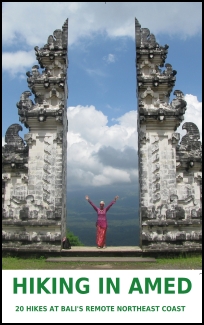
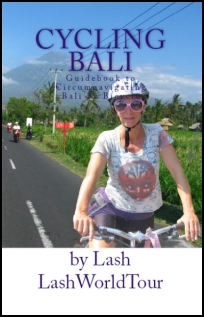
6 pings